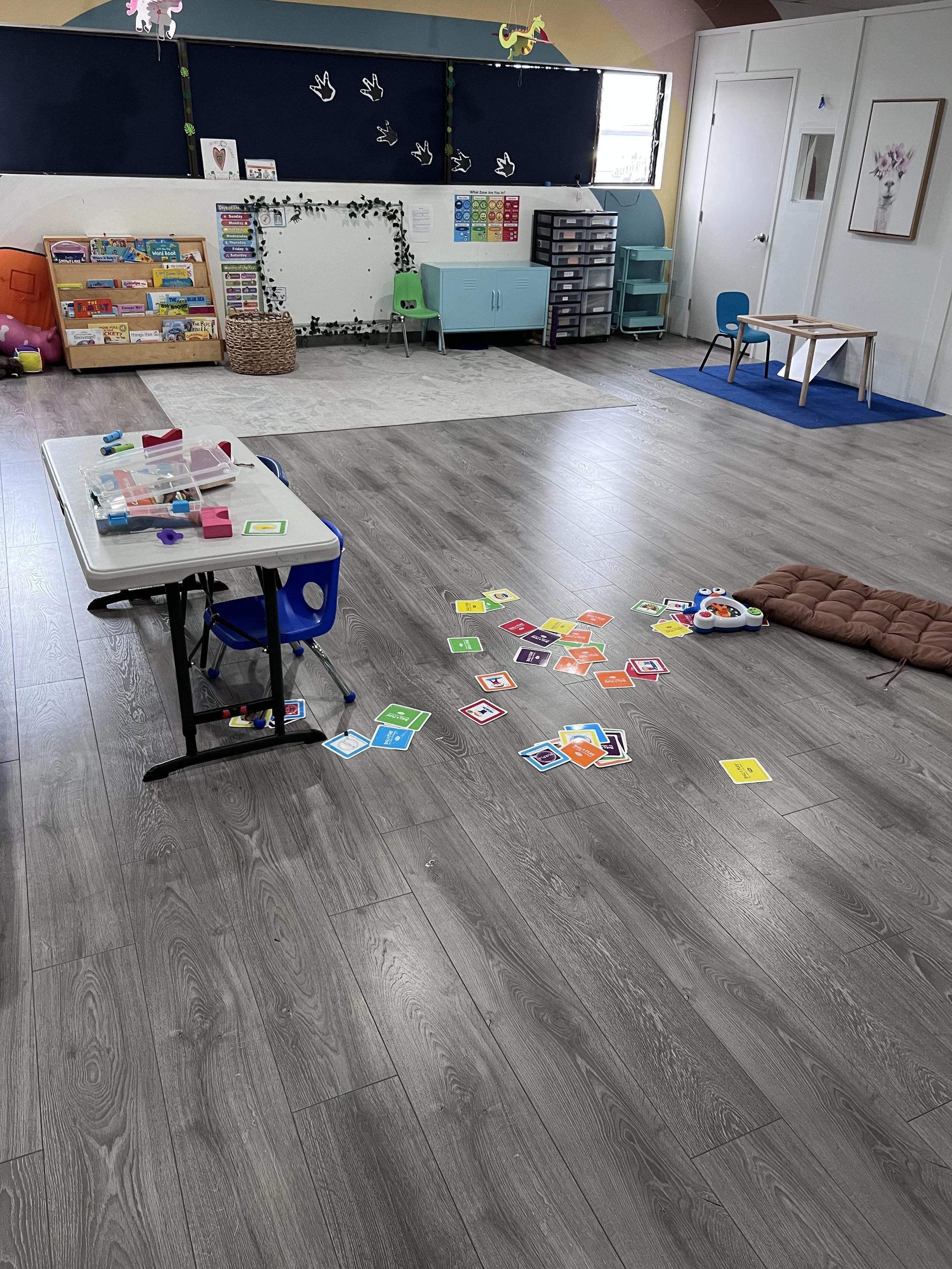THERAPEUTIC AND ACADEMIC SUPPORT: Intensive Option
Every child learns in their own way and at their own pace. For some children, especially those with developmental differences, once-a-week sessions may not be enough to build and maintain new skills. Intensive teaching provides more opportunities for practice, repetition, and reinforcement, helping skills develop and transfer into daily life. By increasing the amount of focused, individualized teaching, children can make faster progress toward their goals in communication, regulation, and academics.
At The Wonder Centre, we offer 1:1 sessions with our Program Assistants at our centre Monday- Friday between 8 am-5:30 pm. Our program delivers research-based, individualized instruction to help children develop key skills, including:
Communication skills
Self-advocacy
Emotional regulation
All session plans are developed by a Board Certified Behaviour Analyst (BCBA) and/or Speech Therapist. These plans are carried out by our team members in a supportive, child-led, and engaging environment that encourages exploration and learning at each child’s pace. We want to provide a relaxed, joyful environment with patient and skilled instructors. Our Centre is abundantly stocked with a variety of toys, craft materials, teaching activities, and sensory supports to enhance the therapeutic/learning experience.
A Supervising Behaviour Consultant is always present at our Centre to provide support and expertise to any team member who may need it. Data is recorded by the instructor each day the child attends. The data will help us understand if the child is making progress over time in the targeted skill areas.
Many children also receive speech therapy, occupational therapy or music therapy sessions as part of the Intensive Program. Typically, the therapy session is scheduled while the child is already at the Centre.
📅 Program Schedule
Runs Monday to Friday at our Centre
Designed for children ages 2–7
Children typically attend 2–3 days per week for two-hour sessions (this is what fits in the Autism Funding Budget).
The Goal Plan
Traditionally, plans written by a Behaviour Analyst/Consultant have been called Behaviour Plans, Treatment Plans, or Assessments. This terminology may suggest to some that the children have behaviours that need to be "fixed". We approach writing plans from the perspective that autistic traits do not need to be eliminated. Our focus is on teaching skills that will assist people with autism to live their best lives. We wish for our words to reflect these values, so we will refer to our reports as Goal Plans.
Each student who attends the intensive program will have an individualized Goal Plan that details 5-10 skills we will focus on increasing. Behaviour Analysts are educators who are trained in the laws of human behaviour to teach life-improving skills. This is typically done by breaking down complex actions into simpler steps. These steps are taught systematically so the student can experience success and are always adaptable to each student's strengths. In each session, analysts record the number of times these skills are practiced so that it can be decided objectively if progress is being made over time. This is why we create "data sheets" and fill them in each session.
Skills are identified through consultation with parents and therapists and by observing the child in the Centre.
There are always 6 domains that we consider when developing a goal plan:
Communication
Understanding Language
Regulation and Advocacy Skills
Life Skills
Participation/School Readiness
Some examples of goals are: (THESE ARE EXAMPLES ONLY AND WOULD BE HIGHLY INDIVIDUALIZED FOR YOUR CHILD).
Participation: When the Instructor announces, "time to go to ___" The student will be supported to transition safely to the next activity. They will do this for 5 different activity zones and complete at least one activity at each station.
Communication: The student will ask for three different preferred objects using gestures, words, and/or Touch Chat.
Understanding Language: The student will follow instructions to "clean up" before moving on to a new toy. They will place at least one item away after the instructor models the action.
Life Skills: The student will void in the toilet and remain dry and clean between trips to the toilet in 45-minute intervals.
Regulation: When the student shows early signs of dysregulation (plugging ears, saying No No! ) they will engage in regulation strategies with a trusted adult. They will keep their hands and feet safe in this situation 9 out of 10 times over one one-month period.
School Readiness: When asked to stand in a line or wait for a turn, the student will be supported to wait calmly, keeping their hands to themselves, for up to 3 minutes.
The Centre is open about 48 weeks of the year. We are closed for 1 week, at the end of December, and one week in the summer (the first week of July). No sessions on Statutory Holidays or weekends
Cost: We will work with you to develop a personalized schedule of services that fits within the budget you’re comfortable using. There is no expectation for families to pay out-of-pocket to participate in our program.
For current rates or to create a customized plan, please contact: Kirsten at kirsten@asdwonder.com
“The things that make me different are the things that make me ME ”








